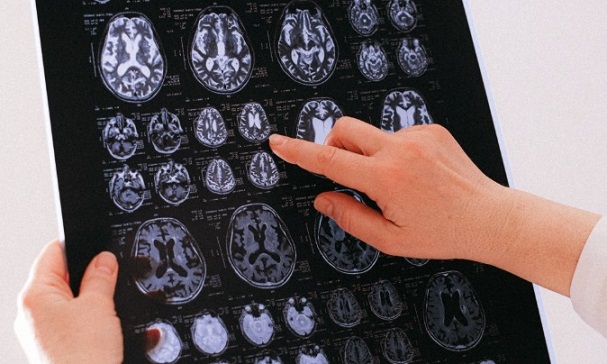Shocking Link Discovered between New Growing Crisis Called Diabetic Dementia and Pancreatic Hormone Amylin
Nikhil Prasad Fact checked by:Thailand Medical News Team May 04, 2025 9 months, 2 weeks, 5 days, 19 hours, 15 minutes ago
Medical News: A new international study has uncovered disturbing evidence that a little-known hormone produced in the pancreas called amylin may play a devastating role in causing a specific type of brain deterioration now being called Diabetic Dementia. This groundbreaking research is a collaboration between scientists from the Bose Institute and Manipal Group of Hospitals in Kolkata, India, and neurologists from 12 de Octubre University Hospital, Instituto de Investigación Sanitaria Hospital 12 de Octubre (imas12), CIBERNED, and Complutense University in Madrid, Spain.
 Shocking Link Discovered between New Growing Crisis Called Diabetic Dementia and Pancreatic Hormone Amylin
Shocking Link Discovered between New Growing Crisis Called Diabetic Dementia and Pancreatic Hormone Amylin
For years, researchers have known that people with Type 2 diabetes face a significantly higher risk—up to five times greater—of developing Alzheimer’s disease and related forms of dementia. However, the reasons behind this alarming connection remained elusive. This
Medical News report now highlights compelling new evidence pointing to the protein hormone amylin—also known as human islet amyloid polypeptide (hIAPP)—as a critical link between diabetes and brain damage.
The Dangerous Role of Amylin
Amylin is produced by the same pancreatic beta cells that generate insulin and is normally involved in regulating appetite and blood sugar. But in diabetics, the production of amylin increases and begins to clump into toxic fibrous deposits in the pancreas. These deposits are not just a local problem. The study shows that misfolded amylin can travel through the bloodstream, cross the blood-brain barrier, and accumulate in the brain—where it causes even more harm.
The researchers found that amylin can combine with another infamous protein, amyloid-beta, which is already known to be involved in Alzheimer’s disease. Together, these two form dangerous “heterocomplexes” that spark intense inflammation in brain tissue. This inflammation damages blood vessels in the brain, disrupts communication between neurons, and may even lead to white matter loss—hallmarks of Alzheimer’s and vascular dementia.
How It All Breaks Down
The study explored how the body's natural systems for cleaning up harmful proteins—such as the proteasome system and autophagy pathways—struggle and ultimately fail to eliminate these amylin clumps. In Type 2 diabetes, the constant overproduction of insulin also means overproduction of amylin. Under stressful cellular conditions, amylin misfolds and forms toxic aggregates.
These clumps overwhelm the pancreas, leading to cell death and worsening diabetes. At the same time, they begin circulating in the blood, reaching the brain, and triggering a similar toxic storm in neurons. Even worse, these rogue amylin fragments may serve as a seed to accelerate the buildup of amyloid-beta in the brain—a known driver of Alzheimer’s disease.
A New Name for a Gr
owing Crisis
The researchers propose that this condition, characterized by the simultaneous presence of Type 2 diabetes and cognitive decline, should be termed Diabetic Dementia. The timeline begins with insulin resistance and beta cell stress in the pancreas and progresses to cognitive dysfunction as the brain’s blood vessels and neurons come under attack.
Animal models supported the findings. Transgenic rats that overproduced amylin developed severe neurological problems, including significant brain amylin deposits, similar to what has been seen in Alzheimer’s patients. Human autopsies showed similar patterns—amylin was found in brain tissues even in non-diabetic individuals with Alzheimer’s.
Hope Through Prevention and Treatment
The study suggests that early detection of misfolded amylin could help identify people at higher risk of developing Diabetic Dementia. Better management of diabetes, therapies that support the body's natural protein clearance systems, or drugs that block the toxic effects of amylin may provide new paths to prevent or delay brain degeneration in diabetics.
In conclusion, the research provides strong evidence that amylin is not only a player in worsening diabetes but also a key suspect in the onset of dementia. Its ability to escape the pancreas and target the brain underscores how interconnected our body systems are. Diabetic Dementia could become one of the most urgent neurological challenges of our time, especially as both diabetes and Alzheimer’s continue to rise in aging populations worldwide. Protecting the brain may start with better control of what’s happening in the pancreas.
The study findings were published on a preprint server and are currently being peer reviewed.
https://www.preprints.org/manuscript/202504.1782/v1
For the latest on Diabetes and Dementia, keep on logging to Thailand
Medical News.
Read Also:
https://www.thailandmedical.news/news/severe-covid-19-increases-diabetes-risk-by-1271-percent-while-mild-cases-show-over-100-percent-increase
https://www.thailandmedical.news/news/taiwanese-study-finds-that-oseltamivir-tamiflu-increases-risk-of-new-onset-of-type-2-diabetes
https://www.thailandmedical.news/news/sars-cov-2-proteins-linked-to-diabetes-risk-through-amyloid-aggregation
https://www.thailandmedical.news/articles/diabetes
https://www.thailandmedical.news/articles/alzheimer,-dementia-
https://www.thailandmedical.news/pages/thailand_doctors_listings
